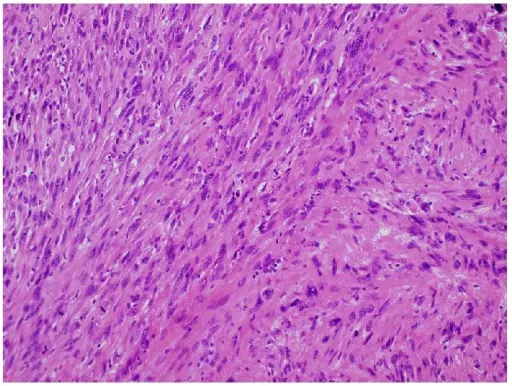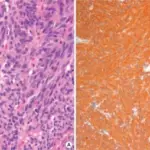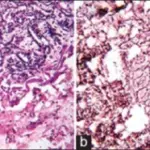Leiomyosarcoma is a rare tumor derived from smooth muscles. It has three types, spindle / conventional, epithelioid, and myxoid.
What is the Pathology of Leiomyosarcoma?
The pathology of leiomyosarcoma is:
-Etiology: The cause of leiomyosarcoma is unknown. However, genetics is considered one of the causes.
-Genes involved: TP53.
-Pathogenesis: The sequence of events that lead to leiomyosarcoma includes cytogenetic and molecular changes.
-Morphology: The morphology associated with leiomyosarcoma shows bulky, fleshy tumor invading into a myometrial wall or polypoid tumor projecting into the lumen.
-Histology: The histology associated with leiomyosarcoma shows severe atypia, increased mitoses, and tumor cell necrosis.
How does Leiomyosarcoma Present?
Patients with leiomyosarcoma typically affect females present at the age range of 40-69 years. The symptoms, features, and clinical findings associated with leiomyosarcoma include abnormal vaginal bleeding, lump or swelling under the skin, bloating and abdominal swelling.
How is Leiomyosarcoma Diagnosed?
Leiomyosarcoma is diagnosed using MRI and CT scans.
How is Leiomyosarcoma Treated?
Leiomyosarcoma is treated with total abdominal hysterectomy, bilateral salpingo-oophorectomy for postmenopausal females and those with metastatic disease.
What is the Prognosis of Leiomyosarcoma?
The prognosis of leiomyosarcoma is poor as therapeutic options are limited.



